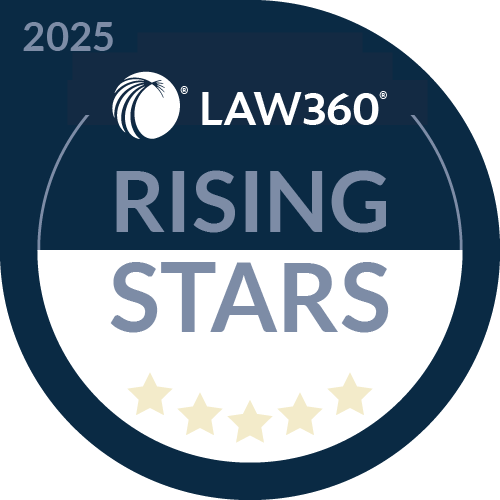Are you or a loved one suffering from a traumatic brain injury in Washington, DC? Breit Biniazan’s personal injury attorneys in Washington are here to help you secure the compensation you deserve, with a proven record that includes a $60 million settlement for a client who sustained a traumatic brain injury in a head-on collision with a commercial vehicle.
Our dedicated team specializes in brain injury cases, bringing the expertise and commitment needed to address the complex challenges these situations present. Traumatic brain injuries can have a life-changing impact, not only on the individual but on their families, making it essential to have a skilled legal advocate on your side. With Breit Biniazan, you can trust that we will fight to ensure you receive the support and compensation necessary to rebuild your life.
Our Success Stories In Compensating Damages For Brain Injury
The following table outlines some of the largest settlements and verdicts Breit Biniazan has secured for victims of traumatic brain injuries. These include settlement amounts, case types, and brief descriptions of the circumstances leading to these devastating injuries.
| Settlement/Verdict |
Case Type |
Description |
| $20 Million |
Car Accidents |
Automobile collision resulting in a traumatic brain injury. |
| $10.5 Million |
Catastrophic Injury |
Utility company’s negligent failure to properly dismantle live power wire, leading to severe electrical burns, traumatic brain injury, and optic nerve damage. |
| $7.5 Million |
Car Accidents |
City vehicle struck a pedestrian, causing a traumatic brain injury. |
| $4.7 Million |
Personal Injury |
Industrial accident where the plaintiff suffered severe orthopedic injuries and a traumatic brain injury. |
| $2.195 Million |
Premises Liability |
A bar patron started a fight, causing the plaintiff to fall and suffer a mild brain injury. The bar had previously banned the patron due to violent behavior. The court awarded the plaintiff $2.195 million. |
What is Brain Injury?
A traumatic brain injury (TBI) occurs when the brain sustains damage resulting from physical trauma. TBIs encompass a spectrum of injuries that can profoundly impact an individual’s well-being and daily life. These injuries span from mild concussions to severe and permanent brain damage, necessitating the expertise of specialized professionals such as traumatic brain injury lawyers. Traumatic brain injury caused by negligence can have significant legal implications, making it crucial for victims to seek immediate legal assistance. Traumatic Brain Injury (TBI): A TBI is a specific subset of brain injury caused by external forces, such as head trauma sustained during accidents, falls, or physical violence. TBIs can vary significantly in severity, leading to a wide range of symptoms and outcomes, making each case unique. These injuries pose a serious risk to an individual’s health and well-being, often necessitating immediate medical attention. The consequences can extend beyond physical trauma, affecting cognitive functions, emotional well-being, and even causing permanent disability. Victims of traumatic brain injuries often face substantial medical bills and lost wages, adding to the emotional pain and suffering they endure. For those navigating the complex legal landscape surrounding brain injury cases, seeking the expertise of experienced traumatic brain injury attorneys is essential. These legal professionals specialize in personal injury law and understand the intricacies of traumatic brain injury cases, ensuring that victims have the best chance to receive the financial compensation they deserve.
Understanding Traumatic Brain Injuries
Traumatic brain injuries (TBIs) occur when the brain is damaged due to an external force, such as a blow to the head or a penetrating injury. These injuries can result from various incidents, including motor vehicle accidents, falls, sports injuries, and acts of violence. The severity of a TBI can range from mild to severe, with effects that may be temporary or permanent. TBIs can be classified into several types, each with distinct characteristics:
- Concussions: Often considered a mild TBI, concussions can cause temporary symptoms such as headaches, dizziness, and confusion. Despite being labeled “mild,” concussions can have serious impacts on cognitive and physical functions.
- Contusions: These occur when the brain is bruised due to a blow to the head, leading to localized bleeding and swelling.
- Lacerations: Resulting from a penetrating injury, lacerations involve cuts or tears in the brain tissue.
- Hemorrhages: This type of TBI involves bleeding in the brain, which can be life-threatening and requires immediate medical attention.
If you or someone you know has suffered a TBI, it is crucial to seek medical attention immediately. Additionally, consulting a traumatic brain injury lawyer can help you navigate the complex process of seeking compensation for your injuries, ensuring that you receive the support and resources needed for recovery.
Symptoms and Effects of Brain Injuries
The symptoms and effects of brain injuries can vary widely depending on the severity and type of injury. Common symptoms include:
- Headache
- Dizziness
- Confusion
- Memory loss
- Mood changes
- Personality changes
- Cognitive deficits
- Physical disabilities
In more severe cases, brain injuries can lead to long-term effects such as:
- Insomnia
- Uncontrollable anger and agitation
- Seizures
- Cognitive decline
- Psychiatric illnesses
These injuries can significantly impact a person’s ability to work, maintain relationships, and engage in daily activities. The emotional and psychological toll on both the victim and their loved ones can be profound. A brain injury attorney can help you seek compensation for your injuries and work with you to develop a plan for your future, ensuring that you have the necessary resources to manage the long-term effects of your injury.
Why Do I Need a Brain Injury Attorney?
At Breit Biniazan, we understand the life-altering effects that a traumatic brain injury can have on you and your family. Handling the legal aspects of a brain injury claim on your own can be daunting, especially when you’re dealing with medical treatments, rehabilitation, and the emotional toll of the injury. Our experienced brain injury attorneys are here to lift that burden, guiding you through every step of the legal process. We specialize in brain injury cases and know how to navigate the complexities involved, from working with medical professionals to accurately assess the long-term effects of your injury to negotiating with insurance companies to ensure you receive the maximum compensation. With Breit Biniazan by your side, you can trust that we will fight tirelessly to protect your rights and secure the financial support you need to rebuild your life after a traumatic brain injury.
Brain Injury Statistics
- Frequency of Brain Injuries:
- Every 9 seconds, someone in the United States sustains a brain injury.
- Brain injuries affect a person’s ability to think, act, and feel, with symptoms ranging widely depending on the injury’s severity, location, and cause.
- No two brain injuries are the same, and survivors often face long-term challenges that can impact both them and their support network.
- Types of Brain Injuries:
- Traumatic Brain Injury (TBI): Caused by an external force, such as a car accident, fall, or assault. TBIs can range from mild to severe, often with life-altering effects.
- Concussion: Often referred to as a mild traumatic brain injury (mTBI), it results from a bump or jolt to the head. Despite being categorized as “mild,” concussions can have serious impacts on cognitive and physical function.
- Non-Traumatic Brain Injury: Results from internal factors like lack of oxygen, exposure to toxins, or tumours. These injuries are often referred to as acquired brain injuries.
- TBI-Related Deaths and Disabilities:
- High-Risk Groups for TBI:
-
- Racial and ethnic minorities
- Service members and veterans
- People experiencing homelessness
- Those in correctional and detention facilities
- Survivors of intimate partner violence
- Residents in rural areas
- Common Causes of TBIs:
- Falls: Responsible for nearly 50% of TBI-related hospitalizations.
- Firearm-Related Injuries: Firearm-related suicides are the leading cause of TBI-related deaths in the U.S.
- Motor Vehicle Crashes: A frequent cause of TBIs, particularly in collisions involving significant force or impact.
- Assaults: Another common cause of traumatic brain injuries, often leading to serious long-term health issues.
Understanding the widespread impact and high occurrence of brain injuries emphasizes the importance of securing experienced legal representation. Breit Biniazan is committed to helping brain injury survivors navigate their legal options and obtain the compensation they deserve.
How Can a Brain Injury Happen?
Traumatic brain injuries can result from a variety of accidents and incidents, such as:
Motor vehicle collisions are a common cause of TBIs, often involving head injuries due to the impact.
Sports Injuries
Athletes are susceptible to head injuries, especially in high-impact sports like football and hockey.
Slip and fall accidents, particularly in older adults, can lead to serious head injuries.
Construction Accidents
Workers in the construction industry face a higher risk of brain injury due to potential falls and falling objects.
Negligent medical professionals may cause brain injuries during surgery or other medical procedures.
Physical Violence
Assaults and physical altercations can result in traumatic brain injuries.
Different Types of Brain Injury
Brain injuries can take on many forms, each with unique causes and effects. Here are some of the most common types:
- Concussion A type of mild traumatic brain injury (mTBI) caused by a blow or jolt to the head that results in the brain shaking inside the skull. While considered “mild,” concussions can still have serious, long-term effects.
- Coup Contrecoup Injury This injury occurs when the brain impacts both sides of the skull due to forceful motion. The brain first strikes the initial point of impact (coup) and then bounces to hit the opposite side (contrecoup), causing injury to both areas.
- Anoxic Brain Injury Caused by a complete lack of oxygen to the brain, resulting in severe and often permanent damage. This injury can happen due to events like drowning, cardiac arrest, or suffocation.
- Traumatic Brain Injury (TBI) A severe form of brain injury caused by external forces, such as a car accident or fall. TBIs can range in severity from mild (like concussions) to severe, with long-lasting cognitive and physical effects.
- Diffuse Axonal Injury A serious brain injury that occurs when the brain rapidly shifts inside the skull, leading to tearing of nerve fibers. It is common in high-speed accidents, such as car crashes, and can result in significant brain damage.
- Acquired Brain Injury (ABI) An injury to the brain that occurs after birth, which is not hereditary or congenital. ABIs can be caused by trauma, stroke, tumors, or diseases, impacting cognitive, physical, and emotional functions.
- Hypoxic Brain Injury Similar to anoxic injuries, hypoxic brain injuries occur when the brain receives reduced oxygen, rather than a complete lack. Hypoxia can happen during medical emergencies such as strokes, cardiac events, or suffocation, leading to widespread brain damage.
Factors That Affect the Severity of a Brain Injury
Even what is considered a “mild” brain injury can lead to long-term disability, as the severity of the injury doesn’t always correlate with the initial symptoms. The location of the injury in the brain plays a crucial role in determining its effects. Here’s how damage to different areas of the brain can result in various impairments:
- Frontal Lobes The largest part of the brain, the frontal lobes control important cognitive functions. Damage here can lead to difficulties with speech, memory loss, impaired judgment, and challenges in decision-making or emotional regulation.
- Cerebellum Injuries to the cerebellum typically affect balance and coordination, often leading to difficulty with motor skills. Damage may also cause a loss of muscle tone, making movement and physical tasks more challenging.
- Brainstem One of the most critical areas, damage to the brainstem can be life-threatening. It controls essential bodily functions like breathing, heart rate, and swallowing. A brainstem injury can severely impair these automatic functions, leading to profound disabilities or even fatal outcomes.
Liability and Negligence in Brain Injury Cases
In brain injury cases, establishing liability and proving negligence are critical steps in determining who is responsible for the injury. Negligence occurs when someone fails to exercise reasonable care, resulting in harm to another person. In the context of brain injuries, negligence can manifest in various ways, such as:
- Failure to maintain a safe environment
- Failure to follow safety protocols
- Failure to provide adequate medical care
- Failure to warn of potential hazards
To establish liability in a brain injury case, you must demonstrate that the defendant owed you a duty of care, breached that duty, and caused your injury as a result. This process often requires gathering substantial evidence and expert testimony. A brain injury lawyer can assist you in building a strong case, ensuring that all aspects of liability and negligence are thoroughly addressed. This legal support is crucial in securing the compensation you deserve for your injuries.
Can I Claim for Somebody with a Brain Injury?
Yes, you can file a personal injury claim on behalf of someone with a brain injury if their injury was caused by someone else’s negligence. This legal action seeks compensation for medical bills, lost wages, and the pain and suffering experienced by the victim.
How Long Do I Have to Claim for Brain Injury in Washington, D.C.?
In Washington, D.C., the statute of limitations for filing a brain injury claim is three years from the date of the accident. It’s crucial to consult with a legal expert promptly to ensure you don’t miss the deadline.
Different Types of Compensation for Brain Injury
Victims of brain injuries may be entitled to various forms of compensation, including:
- Medical Bills: Coverage for medical treatment and ongoing care.
- Lost Wages: Compensation for income lost due to the injury.
- Emotional Pain and Suffering: Damages for the mental anguish endured.
- Permanent Disability: Compensation for long-term or permanent impairments.
Treatment and Rehabilitation for Brain Injuries
The treatment and rehabilitation process for brain injuries can be extensive and tailored to the specific needs of the individual. Common treatments include:
- Medication: To manage symptoms such as pain, anxiety, and depression.
- Physical Therapy: To improve mobility, strength, and coordination.
- Occupational Therapy: To enhance daily functioning and independence.
- Speech Therapy: To address communication difficulties.
- Cognitive Therapy: To improve memory, concentration, and problem-solving skills.
Rehabilitation for brain injuries can be a long and challenging journey, requiring a multidisciplinary approach to address the various aspects of recovery. A brain injury attorney can play a vital role in this process by helping you navigate the rehabilitation landscape, securing compensation for your injuries, and ensuring that you receive the necessary medical care and support. They can work with you to develop a comprehensive plan for your future, focusing on both your immediate needs and long-term well-being.
Finding a Brain Injury Attorney in Washington, D.C.
If you or a loved one has suffered a traumatic brain injury due to someone else’s negligence, it’s essential to consult with experienced DC brain injury lawyers. Look for a lawyer who specializes in personal injury cases and has the specialized expertise needed to handle TBI cases effectively. At Breit Biniazan, our dedicated team of traumatic brain injury attorneys in Washington, D.C. is committed to helping brain injury victims seek justice and the compensation they deserve. We offer a free consultation to assess your case and guide you through the legal process. Don’t delay in seeking immediate medical attention and legal assistance. Contact our Washington, D.C. brain injury lawyer to discuss your case, review medical records, and build a strong case to hold responsible parties accountable for their actions. Your well-being and financial compensation are our top priorities. When it comes to serious injury cases like traumatic brain injuries, trust the experienced professionals at Breit Biniazan to fight for your rights and ensure you receive the proper treatment and financial compensation you deserve. Contact a traumatic brain injury lawyer at Breit Biniazan today.















